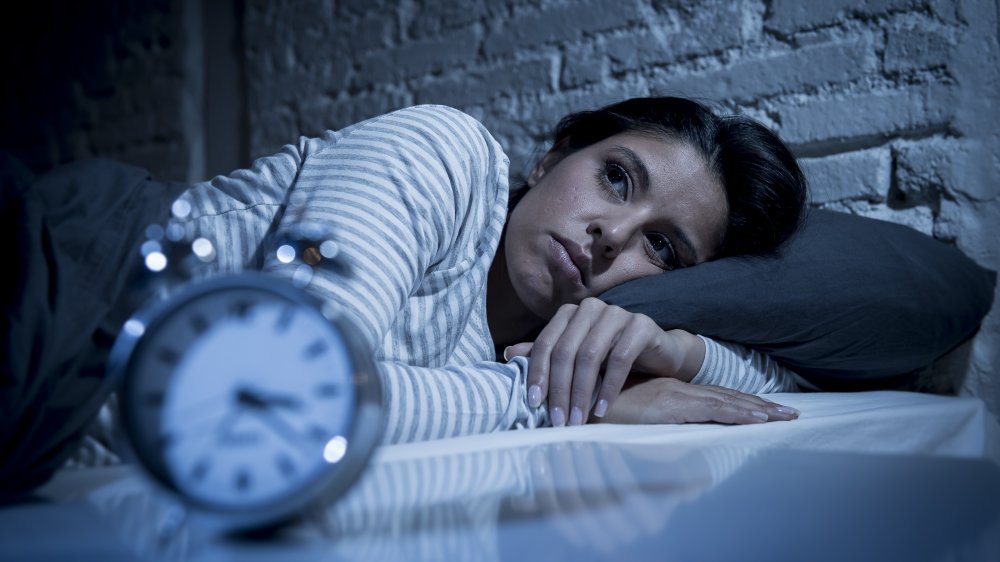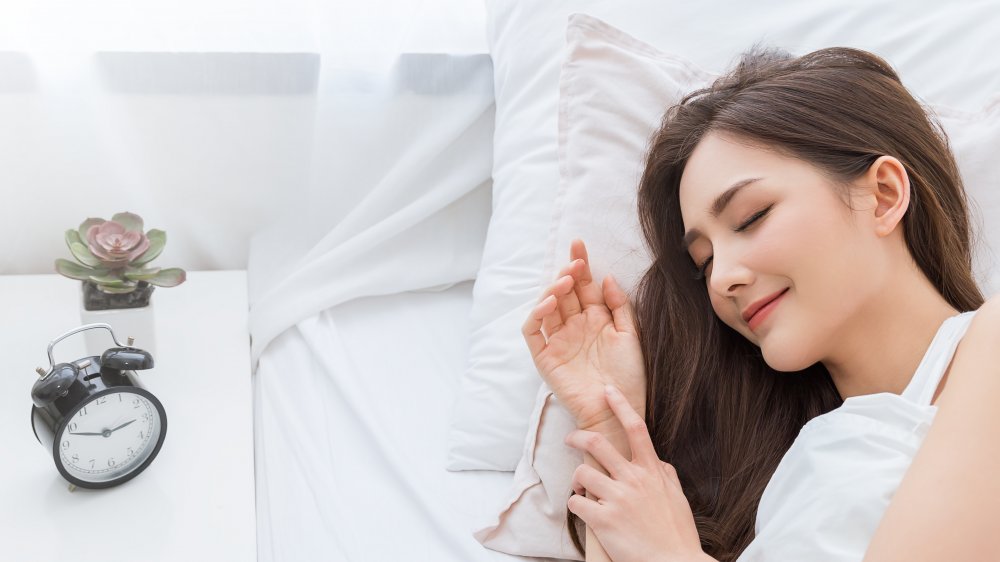Why Experts Are Calling 'Coronasomnia' An Epidemic Of Its Own
After several months of adjusting to disrupted routines, so many of us have resigned ourselves to sleepless nights that there's now a name for the phenomenon: coronasomnia. And whether the reason for those late nights is due to anxiety about COVID-19, financial worries, or simply the ability to binge Community on Netflix, it's a major problem that experts are increasingly calling an epidemic of its own.
"The impact of insomnia on quality of life is enormous," said Charles M. Morin, Ph.D., director of the Sleep Research Center at Université Laval in Quebec (via The Washington Post). "We hear a great deal about the importance of exercising and good diet, but sleep is the third pillar of sustainable health." But with a laundry list of worries ranging from rampant unemployment to juggling work and homeschooling to prolonged waiting times for COVID-19 test results, it's no wonder one survey found almost 77 percent of respondents blame the coronavirus for affecting their sleep.
Here's how to take back the night
Left unchecked, insomnia can exacerbate everything from irritability to hampered focus to major health issues such as diabetes, cardiovascular disease, obesity, and Alzheimer's (via Mayo Health Clinic). However, addressing it head-on results in much-needed health benefits that can help you face trying times: "Sleeping well improves mood, reduces anxiety and better equips you to cope with challenges, including the challenges brought by the coronavirus pandemic," states Dave Balachandran, M.D., medical director of the MD Anderson Sleep Center. "Ample sleep also supports the immune system, which helps defend your body against infections."
To get a handle on insomnia, Balachandran suggests basics that also reduce stress, such as sticking to a schedule, maintaining social connections, and squeezing in exercise, even if it's just lifting soup cans or finding a yoga video online. Other tips that lead to more shut-eye include opening blinds so the natural light helps your body regulate sleep and limiting your naps to no more than 30 minutes before 2 p.m. If you have space, avoid bringing work and its related stress into the bedroom and be sure to cut off any food or drink that could disrupt your slumber in the hours leading up to bedtime, such as caffeine, alcohol, or spicy foods. Ditto with the digital devices, which you'll want to turn off at least one hour before bedtime due to the blue light they emit, as this disrupts the production of the sleep hormone melatonin.
And, of course, Balachandran notes, these are all good habits to practice regardless of whether there's a pandemic. "The need for a good night's sleep will never change," he says.


